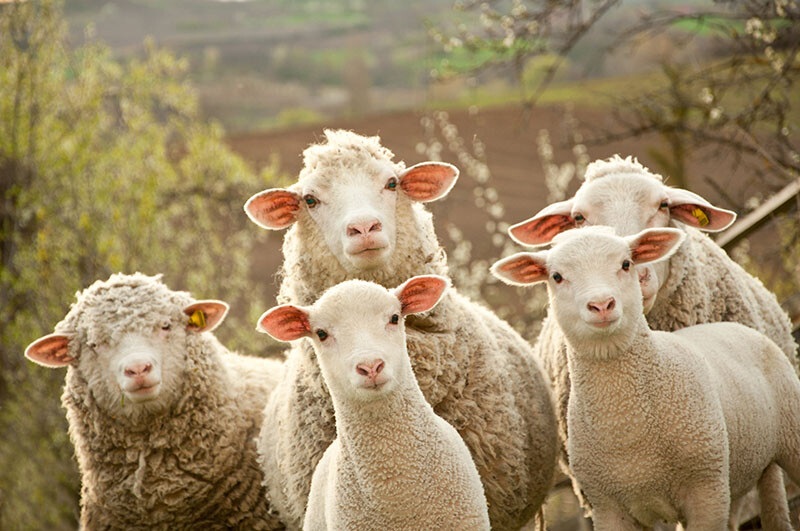6 Things You Learn Working In A Comedy Club

Welcome to ComedyNerd, Cracked's daily comedy Superstation. For more ComedyNerd content, and ongoing coverage of that venerable comedy club, The Iran/Contra Affair, please sign up for the ComedyNerd newsletter below.
Comedy clubs are strange places. Strange in the best way possible but still strange.
Don't Miss
The rooms that smell like cigarettes and burned-out comedy careers of years’ past, audiences packed in so tight that you can take a guess what the guy next to you had for lunch, drunk people in their 40s who want to prove to the rest of Accounting just how funny they are by interrupting the show.
I’ve worked the door and as a bartender at a comedy club that’s seen it all since opening in the 1970s, and while it’s only been nine months on the job, there are already things that are very apparent to me even in that short amount of time.
Here's what I've learned, <taps mic>.
It's Best Not To Take Getting Worked-Over Personally
A big part of the door guy job is seating people, and there's an art to it. Comics, especially whoever's hosting the show, often get the crowd involved in their material, and there are some who are so good at working the room that it’s a major part of their act, like the supremely-gifted Jessica Kirson.
A good audience member will take the ribbing they get in stride. After all, it’s a comedy show! Everyone is there to have fun, and sometimes that requires you, the audience member, to be a part of the show in a way that comes at your expense. Unfortunately, lots of people don’t want to play along and some of those people decide to make it personal.
That is a big mistake, like hope-that-person-with-the-mic-feels-charitable or you're in for a serious blistering.
And if the comedian gets personal right back, you were probably being an a-hole in the first place. You have a blister on your forehead. Ha!
Temperature Matters!
Ever hear about how casinos keep the air conditioning blasting all night to keep you at your table spending money? Well, the same is true at comedy clubs to keep people laughing.
Something I never even thought to consider is the impact of room temperature on an audience, but as my manager informed me when I reached out for this piece, it can matter.
A warm, stuffy room can leave a crowd lethargic and unresponsive to the comedy. Hell, even The Simpsons becomes just a pretty amusing show when I’m tired. If you’re ever in a comedy club and it feels cold, it could be to keep you from tiring! Another possibility is that the club had its heat shut off, which luckily I have not experienced yet.
And it's not just comedy clubs that keep it on the cool side, Simpsons and Cheers writer Ken Levine alleges David Letterman mandated that the Ed Sullivan Theater be kept at a comedy-conscious 60 degrees. Maybe his Netflix show is warmer but probably not, he's got insulating beard now.

Shutterstock
Interrupting A Show Says A Lot About Someone
I can’t comprehend why anyone would ever interrupt a performing comedian. What psycho BS goes on in the brain of someone who sees a person telling jokes on stage and thinks to themselves, “I should also be involved in this, right now.” It makes absolutely zero sense, and yet it still happens a lot.
If you're one of these terrible people, there are a few observations I'll offer about you: My guess is you’re awful at parties and always challenge people to either dance-offs or chugging contests. Maybe you flipped over a table after losing in beer pong. You’ve probably been asked to leave a wedding after chastising the band for not playing “Goodbye Stranger.”
Sometimes, people want to show off how funny they are to their friends. No, hold up, you’re not that funny. All you are is deluded by liquor and overcome by body spray vapors. You should dial that stuff back, hard.
Other people think the comedians want them involved. Here's the rule on that: unless they speak to you, I promise they don’t. If you hear something you don’t like, wait until the show's over, maybe you can have a conversation with the comic about it (Don’t get your hopes up, though).
It's generally real simple: just don’t be this person. You not only ruin the show for a comedian who’s performing an extremely difficult and unforgiving art form, but you ruin it for people who paid money for tickets, got a babysitter and paid for parking who now have to listen to you derail everything.
The Perks Of The Job Are Subtle But Cool
I didn't go to work at a comedy club for the history, but mine has a ton of it. It's like its own living museum, starring other people besides Ben Stiller. The walls are absolutely covered with pictures of comedians that have hit our stage. It's a somewhat-musty, tiny building, but the likes of Jim Gaffigan and Dave Chappelle have performed there. When I walk in, I feel a sense of importance in the room. It has meant a lot to so many people.
And beyond being surrounded by history, watching stand up comedy night after night never gets old. A comedy club doesn't stay static. It's pretty much something new every night.
Maybe it's a regular who tries out new material. And it's not impossible that a massive name will pop in because they’re filming something nearby or a comic who could sell out theaters will do a weekend of shows for less than 200 people each show.
My personal favorite perk: working a show for a headliner you hadn’t previously known about, but they kill it and become one of your new go-to comics. For me, this totally happened when Andy Haynes headlined.
Getting 140 People To Leave A Room In Five Minutes Is Very Difficult
A headliner will typically do two shows a night: A 7:00 and a 9:00. The first show usually wraps up around 8:40, so, if they’re both sold-out, starting the second show on time requires getting 140 people out the door, the room cleaned up, chairs put away and 140 people checked in and seated in a span of 20 minutes.
The hardest part of that equation is the herding 140 sheep out the door, 60 of which are drunk sheep. They have to go out the side door and not the front, but there will be at least 20 wayward sheep who try to go out the front. We slaughter those.

Shutterstock
Then you have stragglers. Some people stick around hoping to meet the comedian, and they're usually the kind of people who really love being told “No.” One time, a couple just embraced until they were the last two people in the room and were asked to leave. I still think about them. They might be sewn together by now. I hope so.
It's A Nightly Reminder That Stand-Up Is A Brutally Difficult Artform
I've always thought stand-up comedy was hard, but now that I've worked at a club and watched night after night, I know how hard it is. Much like being an astronaut, most people look at comedians and think “I could do that.” Ok, maybe substitute ‘mercenary’ for ‘astronaut.’
Stand-up comedy is flat-out just a bizarre concept. Some person goes up and tries their best to make a room full of people laugh. It sounds like a bizarre medieval punishment. With some exceptions, it’s one person, a microphone, their thoughts and the audience. There’s no one else on stage to bail you out like in a crappy improv show. If you’re dying, you’re dying, and the only way to get better is to continue dying until you stop dying. Then probably go back to dying again.
But really, it is so much more than telling funny jokes. It’s about delivery, specific word choice, timing, tone and everything in between. Also, failure is part of the gig, and accepting failure is easier said than done.
In his book, Is This Anything? Jerry Seinfeld wrote, “The real problem of stand-up, of course, is that you must constantly justify why you are the only one talking while a room full of people sit quietly.” He has several other perfect characterizations of the art, but as a nightly viewer of it, that one resonates the most.
Someone killing on stage always makes me wonder how it’s even possible. With every great joke I can’t help but think how someone’s mind can come up with something that funny.
And then I go back to thinking I'll become a mercenary.
So there you have it. Those are some things I’ve learned as a wide-eyed Huckleberry working in a comedy club. Now please, keep table talk to a minimum and remember, we have a seven-drink minimum.
For more ComedyNerd, be sure to check out:
China, IL': Maybe The Most Bonkers 'Adult Swim' Show Ever
Kevin Smith is the Stan Lee of Movie Comedy
It's Always Sunny In Philadelphia': Dennis Reynolds Is The Ultimate Supervillain
Top Image: Shuttersock
